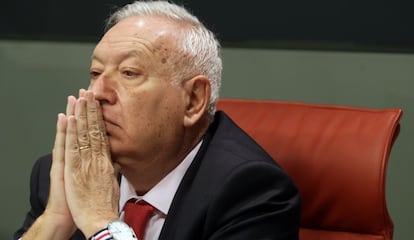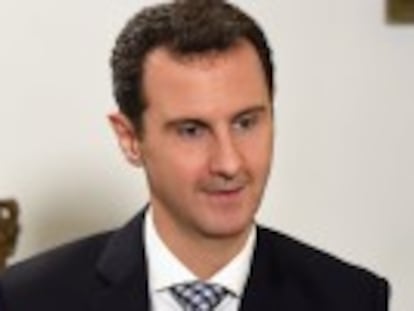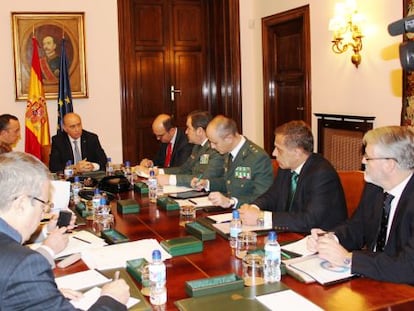Spanish foreign minister: Assad has role to play in Syria peace process
Acting diplomatic chief Margallo responds to EL PAÍS's interview with the Syrian leader


Syrian President Bashar al-Assad must be part of the negotiation to end the conflict in his country, but not part of the solution.
So said Spain’s acting foreign minister, José Manuel García-Margallo, a day after EL PAÍS published a lengthy interview with Al-Assad in which the latter did not rule out staying in power for 10 more years “if the Syrian people want me to” and praised Spain for not trying to depose him, unlike other European countries.
“Spain will not put forward Al-Assad’s positions but its own positions”
“In February 2012, at the Munich Security Conference, I warned that there was no military solution for Syria,” recalls García-Margallo. “But my position was not widely shared back then. I was told that we shouldn’t worry about al-Assad because he would fall within three months.”
Five years after the outbreak of the Syrian conflict, Spain’s diplomatic chief notes that his own view has gained new adherents. In this time, the situation in Syria has ballooned into a humanitarian crisis the likes of which had not been seen since World War II; it is also destabilizing the entire region and posing a threat to the European Union.
In García-Margallo’s opinion, the events of recent months prove that “it was naïve to think that Russia would allow Al-Assad to fall.”
The acting minister also makes a point of rejecting the Syrian leader’s hope, expressed in his interview with EL PAÍS, that Spain will speak up for his regime’s point of view at EU forums.
“Spain will not put forward Al-Assad’s positions but its own positions,” said García-Margallo. “And the latter can be summed up as follows: there needs to be a political agreement over the future of Syria that guarantees territorial integrity, a democratic system and a secular regime.”
And the only way to reach such a deal is through talks between all parties, excluding the terrorist groups. But the list of organizations with ties to terrorism cannot be imposed by each of the parties at the talks, but rather be set by the United Nations Security Council. Meanwhile, no ceasefire can hope to last if the political process does not move forward.
The Spanish diplomatic chief says a land invasion by Turkey and Saudi Arabia “would only make the conflict worse”
The Spanish minister did grant that Al-Assad is right about one thing: Spain is not keen on a military intervention in the region. García-Margallo is ruling out any Spanish participation in coalition strikes in Syria without a Security Council resolution or a request from the affected country. That is why there are 300 Spanish military troops training the Iraqi army but not the Syrian opposition.
The Spanish diplomatic chief also cautions against the land invasion announced by Turkey and Saudi Arabia. “It would only make the conflict worse,” he said, underscoring the risk of a direct confrontation between Saudi and Iranian troops on Syrian soil.
Even though the Spanish position is less hostile to the Damascus regime than some of its partners, García-Margallo underscores that Spain respects its commitments. “We express our opinions within the EU and NATO, but when an agreement is reached, we are absolutely loyal.”
The Syrian crisis is taking up much of the international agenda with a meeting of foreign ministers from Mediterranean countries scheduled for this week.
English version by Susana Urra.
More information









































